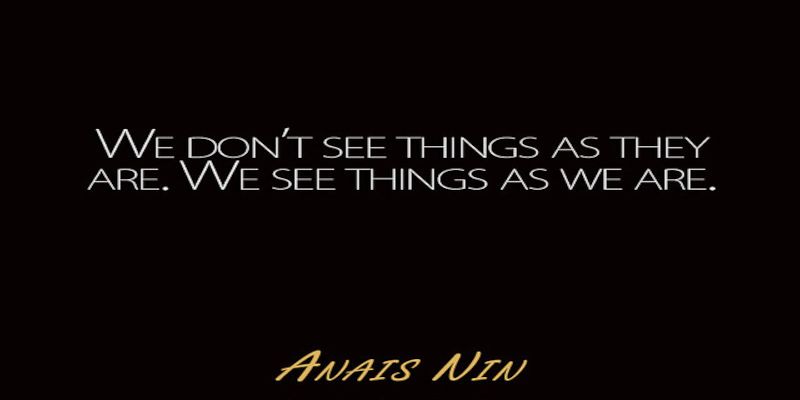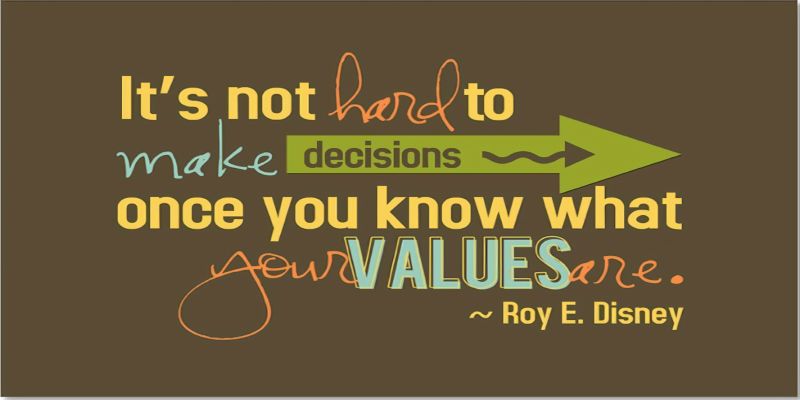Table of Contents
Toggle“What to do if you hate your job?” It is a common question these days. Job satisfaction rates have never been so low. One study even claims that 85% of people hate their job.
When I don’t like my work, I attempt to change to a different one. But that’s just me. And who am I to say that’s always the right choice?
Hating your work isn’t good, since we spend a lot of our day at work. Not to mention, people need to work longer before they can go on retirement and ride off into the sunset.
But the real question is, “Why exactly are people so unhappy at their work?” Let’s find out.
What to do if you do don't like your work

What you should do if you dislike your work depends on the reason(s) why you’re not enjoying it in the first place.
But whatever the reason is, there is one thing you should always do, UNDERTAKE ACTION.
Attempt to fix the problem(s)
Simply jumping ship when there might just be a small hole in the boat hull that can be fixed doesn’t make much sense to me.
One can always attempt to fix the issues that arise at work. Maybe the problems are solvable, and switching jobs is in these cases not necessarily required.
What I’m saying is that you shouldn’t immediately count out people’s goodwill, and attempting to fix the issue(s) might be worth it and even the correct play.
Make a list of the positives and negatives
Making a list of the positives and negatives is a good practice. It is never a bad thing to make a clear listing of the things that you like and don’t like.
After listing the pros and cons, it is that much easier to see how much you’ve got going for, and against you and how much value you place on each pro and con.
Change how you think about work

Even though there might be more cons than pros on your list, that doesn’t necessarily mean that your work is all that bad.
The negatives might be very small, and you might not put all that much thought, energy, and thus, value in them.
Changing the way you think about the small things, the minor details at work that you can’t control is beneficial since nothing in life is perfect, and not everything is in your control nor can it be changed.
Try to accept what you can’t control
Don’t place too much weight and value on the things that are outside your control. Because ultimately, it is wasted energy since, unfortunately, you can’t control everything that’s going on.
If you can’t accept the things you can’t control at work, it might be time to consider switching jobs.
Change work

When all other steps have failed, or you are determined to change jobs because it isn’t suited to you, you should make a plan to change work.
Never change work without a proper plan, because it will just cause more problems and put you even more behind. Knowing when to change jobs is important to prevent you from causing even more trouble down the line.
Realize that changing jobs will always be stressful, and there might be times you wish you didn’t start changing jobs. But what matters in the end, is that you are happy and feel fulfilled at your work.
Frequently Asked Questions (FAQ)
Signs that you don’t like your work

There are some telltale signs that someone hates their work. These potential signs are:
You complain a lot
One of the most obvious signs of not liking one’s job is complaining more than they did before.
Oftentimes, the people close to the person who dislikes their work like their partner, best friends, and family will notice that the person in question is getting increasingly unhappy which will result in complaining a lot more.
You feel unmotivated
You feel unmotivated and as a result, constantly have to drag yourself out of bed whereas before, you couldn’t wait to get out of bed to start your day and go to work.
Feeling unfulfilled

Fulfillment is a weird thing. On one hand, we work to pay the bills, but on the flip side, we need to get satisfaction, and gratification from our job as well.
We want to and even need to feel, that we are making a difference in this world. That we are improving society in one way or another.
Doing a mindless job wherein we are unfulfilled is sustainable for a little while, and if no other opportunities arise. But, in the long run, this will lead to depression, unhappiness, and feeling unfulfilled.
Trying to rationalize things
We people are often great at rationalizing the things we do.
And if you think smart people are exempt from this particular kind of behavior, think again. Since smart people can often find more reasons and are better at arguing/rationalizing why their job “isn’t so bad after all.” Even when they despise it.
And while it is normal for people to complain from time to time, continuously rationalizing why work isn’t so bad after all is not normal and means that something is wrong.
Why don’t I like my job?

You dislike your boss
One of the complaints I often hear from people is that they generally like and enjoy the work itself, but dislike working with their boss for a whole variety of reasons.
Sometimes the boss is micromanaging, over-demanding, or sometimes he/she is just plain and simple, an asshole.
Sometimes the boss in question might be unaware of their annoying habits such as micromanaging other people, and might even be open to changing these habits. Oftentimes, though, they are not open to change and perhaps even suggestions of others. And since they are higher up on the social hierarchy ladder, you’ll have to suck it up and listen.
The type of work doesn’t suit you

The work you do has to match your personality, your temperament so to speak.
It’s not that hard to imagine that most introverted people will not feel happy and fulfilled in a sales position, since it is generally an extroverted job with lots of social interaction. Not saying that it’s not possible, just not very likely.
Likewise, it’s hard to imagine an extroverted person working at a mostly very introverted job with little social interaction, like being a writer or a librarian.
Typically speaking, it is best for introverted people to practice relatively introverted jobs and for extroverted people to practice comparatively extroverted jobs. Since, this way, the job matches the person’s temperament.
You dislike your colleagues

One of the reasons why you don’t like your job is your coworkers.
If you are at a large company, you might have a lot of direct colleagues with whom you have to work and live together with.
It is unlikely that you’ll get along well with all your colleagues since the group of people who you have to work together with is kinda put together with “the luck of the draw.” In those instances, you just have to think, “Not my monkeys, not my circus”, even though you might be desperate to change things.
Since you aren’t in control of whom you work and live together with like you are with whom you choose to interact with in your free social time, it is very well possible that you dislike certain colleagues.
At worst, some malevolent coworkers might even exhibit gaslighting behavior in an attempt to gain control, and power over you.
You are overworked

It is possible that you are being over-asked at work. And especially if you are agreeable, this can lead to being overworked.
It is important to define and verbalize clear boundaries when you are overworked, and preferably before getting to that point. Remember that health is your primary concern in life, and you ultimately have to guard and protect it.
Lack of communication
Clear and concise communication is essential to keep a well-functioning, cooperative environment at work.
Nobody likes being left up in the air. We humans despise uncertainty and, thus, try desperately to control things in an attempt to predict the immediate present and the future.
Lack of job ethics

Every individual has a set of morals and ethics.
Sometimes, a company goes rogue and the only thing that matters is making money, no matter what the cost.
People, in those particular cases, are used as toys and every single employee is a number whose only purpose is to make the company as much money as possible while completely disregarding their input, safety, happiness, and fulfillment.
When this is the case, I can only advise one thing, and that is to switch jobs as quickly as humanly possible. And what if you hate your new job without ethics? That’s when you should leave even faster because you have no connections or emotional ties to anyone at that place.
When should you change jobs?

Well, knowing when to change jobs is an art. And it shouldn’t be attempted lightly. It should always be done with the right amount of planning and rational thought. Never based on impulsive, irrational emotions.
You should change jobs if you dislike your work for a prolonged period. Having dips in motivation from time to time is normal, since life happens, and life can be quite rough and harsh at times. I would even say that it’s beneficial to do things you don’t like from time to time.
But if you show any signs of not liking your work over a longer period, you should for sure consider changing work shortly rather than just trying to “tough it out.”
Rarely have I seen things get better by doing nothing and just wishing it gets better over time.
The only thing you should keep in mind is that the grass always seems greener on the other side of the fence. Sometimes it is, and sometimes it isn’t. But having the courage to explore and find out is required at times. Especially when we’re feeling miserable.
Tips for changing work

Whatever you do, never mindlessly quit a job without having a backup plan. Certainly not if you have a lot of outstanding loans and/or a family to support.
The following tips can help you before changing jobs:
Think about what type of work you want to do
Not every job is suited to each individual. Each person has their temperament and thus, the temperament has to match the job.
Introverts generally want less interaction at work, while extroverts thrive at jobs with lots of social interaction.
Keep this in mind when applying for a new job.
Get your resume in order
When you change work, this means you’ll have to apply for a job again.
When you apply for a job, they typically want to see your resume. It shows the abilities and skills you’ve managed to acquire through the years and your previous job experiences.
Always get your resume to make a professional impression. Remember that first impressions are very important, no matter what you do in life.
Sharpen up your job interview skills

Extroverts are typically better at job interviews than introverts. But that doesn’t mean that an introvert is immediately at a disadvantage when applying for a new job, either.
Sharpen up your interview skills by practicing in front of the mirror, or engaging in role-playing with friends or family members.
It’ll help you when the day comes that you have to apply for real.
Sharpen up your competence
You may need to take some extra classes and courses to polish up your skills before putting yourself out on the job market again.
Every job has its requirements and, thus, skills you’ll need to be good at. Analyze what those potential skills are and improve on them.
The harder you work, the more competent you get, and thus, the more chance you have at getting that new job of your dreams.
Why do I find quitting my current job so hard?
There are mainly two reasons why people find quitting their current job so hard:
- People despise uncertainty
- People are creatures of habit
People despise uncertainty, thus, they crave certainty. As a result, people often start operating under the “the devil we know is better than the devil we don’t know” norm.
Most people are self-aware enough to realize and effectively predict that changing jobs is often accompanied by a lot of stress, work, and possibly, an even worse job in the end.
Not to mention, we people are creatures of habit. When we’ve been going to the same job, doing the same thing for years, no matter if we like it or not, it becomes a force of habit. And unlearning habits takes a lot of hard work and time.
Rationalizations that people often make when feeling miserable at work

The following list is all possible attempts to rationalize feeling bad at work. Keep in mind that those are viable reasons, and what makes them rationalizations is the reason they are being told.
- I have a lot of vacation
- I make a lot of money
- I live close to work
- I work nice hours
- I have good coworkers
- Other workplaces aren’t better
Those are possible rationalizations often used to mask feeling and being miserable at work.
Conclusion

Knowing when to change jobs is important before even attempting to find other work.
Sometimes, it is possible to resolve certain problems at work that are dragging your mood down. At times, the work itself isn’t the difficulty, but rather an issue with the boss, colleague, or work environment that needs to be resolved.
However, you should change your career if you hate your work. In the long term, staying at a job you hate, no matter how much you earn, how much vacation you have, or the additional benefits you get, is going to make you miserable and depressed.
Remember that if you’re going to switch work, it’s critical to do it consciously, carefully, and finally, with the right plan.









